Which nations have qualified in Freestyle for Paris Olympics
Wednesday, May 1, 2024 - 13:12 By Eric Olanowski

PARIS, France (May 1) -- The ultra-competitive and uber-emotional final stage of the Paris Olympic Qualifiers is set to take place in Istanbul, Turkiye, May 9-12.
After next week’s Battle on the Bosporus -- which is the sixth and final event on the Olympic qualification calendar -- all 288 tickets to Paris 2024 will be booked and the nations wrestling in Paris will be set.
Breakdown of quotas allocations for Paris 2024:
- World Championships = 30 freestyle, 30 women’s wrestling and 30 Greco-Roman = 90 quotas
- Continental Olympic Qualifiers (x4 continents) = 12 freestyle, 12 women’s wrestling and 12 Greco-Roman = 36
- World Olympic Qualifier = 18 freestyle, 18 women’s wrestling and 18 Greco-Roman = 54
- Total = 96 freestyle, 96 women’s wrestling and 96 Greco-Roman = 288 wrestlers in Paris
It’s worth noting, and as you’ll see below, the induvial wrestler who earns the ticket to the Olympic Games does not own the right to compete in Pairs. Ultimately, it’s the National Olympic Committee / country who selects their entry for the Games.
For example: David TAYLOR (USA), through his world-title winning performance in Belgrade, punched the United States’ ticket at 86kg. But after going through their Olympic Trails, and with Taylor falling in the finals, the Stars and Stripes will send Aaron BROOKS (USA) to Paris at 86kg.
Over the last 288 days, wrestles have gone through two of three stages vying for their opportunity to earn their nation’s berth to Pairs.
The beginning stages of the qualification process took place last September at the 2023 World Championships, in Belgrade, Serbia, where there was a total of 90 quotas up for the taking. Wrestlers who won a medal--gold, silver or bronze (x2)-- earned a ticket for their country.
Additionally, the two losers of the bronze-medal matches faced off in an Olympic playoff match, determining the fifth allocation in Belgrade.
Then came the Continental Olympic Qualifiers, where 36 quotas per continent were handed out.
Those athletes who reached the finals of their respective weight classes at the Pan-American, African & Oceania, European and Asian Olympic Qualifiers booked their nation’s ticket to Paris.
Now, after traveling through Belgrade, Acapulco, Alexandria, Baku and Bishkek, we’ve reached Istanbul for the “Last Chance Qualifier.”
There will be a slight adjustment to the number of allocations given in Istanbul, where in addition to the finalists earning berths to Paris, there will be an Olympic playoff between the winners of the bronze-medal matches to determine the final entries for the Olympic Games.
The draws for the World Olympic Qualifier will take place on May 8, with wrestling beginning the following day. Greco-Roman will compete live on UWW+ on May 9-10, women’s wrestling on May 10-11 and freestyle on May 11-12.
Here are the freestyle nations that have qualified for the Paris Olympics before the start of the World Olympic Qualifier (May 9-12).
57kg
From World Championships
Serbia (Stevan MICIC)
Japan (Rei HIGUCHI)
Albania (Zelimkhan ABAKAROV)
Armenia (Arsen HARUTYUNYAN)
Zavur UGUEV as an Individual Neutral Athlete
From Pan-Am Qualifier
Mexico (Roman BRAVO YOUNG)
Puerto Rico (Darian CRUZ)
From Africa & Oceania Qualifier
Egypt (Gamal MOHAMED)
Guinea Bissau (Diamantino IUNA FAFE)
From European OG Qualifier
Azerbaijan (Aliabbas RZAZADE)
Aryan TSIUTRYN as Individual Neutral Athlete
From Asian OG Qualifier
Kyrgyzstan (Bekzat ALMAZ UULU)
Uzbekistan (Gulomjon ABDULLAEV)
From World Olympic Qualifier
India (Aman AMAN)
United States (Spencer LEE)
China (Wanhao ZOU)
65kg
From World Championships
Hungary (Iszmail MUSZUKAJEV)
Puerto Rico (Sebastian RIVERA)
Shamil MAMEDOV as an Individual Neutral Athlete
Armenia (Vazgen TEVANYAN)
Iran (Rahman AMOUZAD)
From Pan-Am Qualifier
Mexico (Austin GOMEZ)
Cuba (Alejandro VALDES)
From African & Oceania Qualifier
Australia (Georgii OKOROKOV)
Samoa (Gaku AKAZAWA)
From European OG Qualifier
Georgia (Goderdzi DZEBISASHVILI)
Azerbaijan (Haji ALIYEV)
From Asian OG Qualifier
Japan (Kotaro KIYOOKA)
Kyrgyzstan (Ernazar AKMATALIEV)
From World Olympic Qualifier
Albania (Islam DUDAEV)
Mongolia (Tulga TUMUR OCHIR)
United States (Zain RETHERFORD)
74kg
From World Championships
Zaurbek SIDAKOV as Individual Neutral Athlete
USA (Kyle DAKE)
Serbia (Hetik CABOLOV)
Japan (Daichi TAKATANI)
Greece (Georgios KOUGIOUMTSIDIS)
From Pan-Am Qualifier
Venezuela (Anthony MONTERO)
Cuba (Geandry GARZON)
From African & Oceania Qualifier
Guinea Bissau (Bacar NDUM)
Egypt (Amr HUSSEN)
From European OG Qualifier
Azerbaijan (Turan BAYRAMOV)
Mahamedkhabib KADZIMAHAMEDAU as Individual Neutral Athlete
From Asian OG Qualifier
Uzbekistan (Bekzod ABDURAKHMONOV)
Yones EMAMI (Iran)
World Olympic Qualifier
Tajikistan (Viktor RASSIDIN)
Slovakia (Taimuraz SALKAZANOV)
Albania (Chermen VALIEV)
86kg
From World Championships
United States (David TAYLOR)
Iran (Hassan YAZDANI)
Kazakhstan (Azamat DALUETBEKOV)
San Marino (Myles AMINE)
Uzbekistan (Javrail SHAPIEV)
From Pan-Am Qualifier
Puerto Rico (Ethan RAMOS)
Canada (Alexander MOORE)
From African & Oceania Qualifier
Australia (Jayden LAWRENCE)
Algeria (Fateh BENFERDJALLAH)
From European OG Qualifier
Artur NAIFONOV as Individual Neutral Athlete
Azerbaijan (Osman NURMAGOMEDOV)
From Asian OG Qualifier
Japan (Hayato ISHIGURO)
Mongolia (Bat Erdene BYAMBASUREN)
World Olympic Qualifier
Greece (Dauren KURUGLIEV)
Bulgaria (Magomed RAMAZANOV)
Georgia (Vladimiri GAMKRELIDZE)
97kg
From World Championships
Bahrain (Akhmed TAZHUDINOV)
Azerbaijan (Magomedkhan MAGOMEDOV)
United States (Kyle SNYDER)
Georgia (Givi MATCHRASHVILI)
Turkiye (Ibrahim CIFTCI)
From Pan-Am Qualifier
Cuba (Arturo SILOT TORRES)
Dominic Republic (Luis PEREZ)
From African & Oceania Qualifier
Egypt (Mostafa ELDERS)
South Africa (Nicolaas DE LANGE)
From European OG Qualifier
Alikhan ZHABRAILOV as Individual Neutral Athlete
Aliaksandr HUSHTYN as Individual Neutral Athlete
From Asian OG Qualifier
Kazakhstan (Alisher YERGALI)
Iran (Amirali AZARPIRA)
World Olympic Qualifier
Germany (Erik THIELE)
Poland (Zbigniew BARANOWSKI)
China (Awusayiman HABILA)
125kg
From World Championships
Iran (Amir Hossein ZARE)
Georgia (Geno PETRIASHVILI)
Turkiye (Taha AKGUL)
United States (Mason PARRIS)
Abdulla KURBANOV as Individual Neutral Athlete
From Pan-Am Qualifier
Puerto Rico (Jonovan SMITH)
Canada (Amarveer DHESI)
From African & Oceania Qualifier
Nigeria (Ashton MUTUWA)
Egypt (Diaaeldin ABDELMOTTALEB)
From European OG Qualifier
Dzianis KHRAMIANKOU as Individual Neutral Athlete
Azerbaijan (Giorgi MESHVILDISHVILI)
From Asian OG Qualifier
Mongolia (Lkhagvagerel MUNKHTUR)
Kazakhstan (Yusup BATIRMURZAEV)
World Olympic Qualifier
Kyrgyzstan (Aiaal LAZAREV)
China (Zhiwei DENG)
Hungary (Daniel LIGETI)



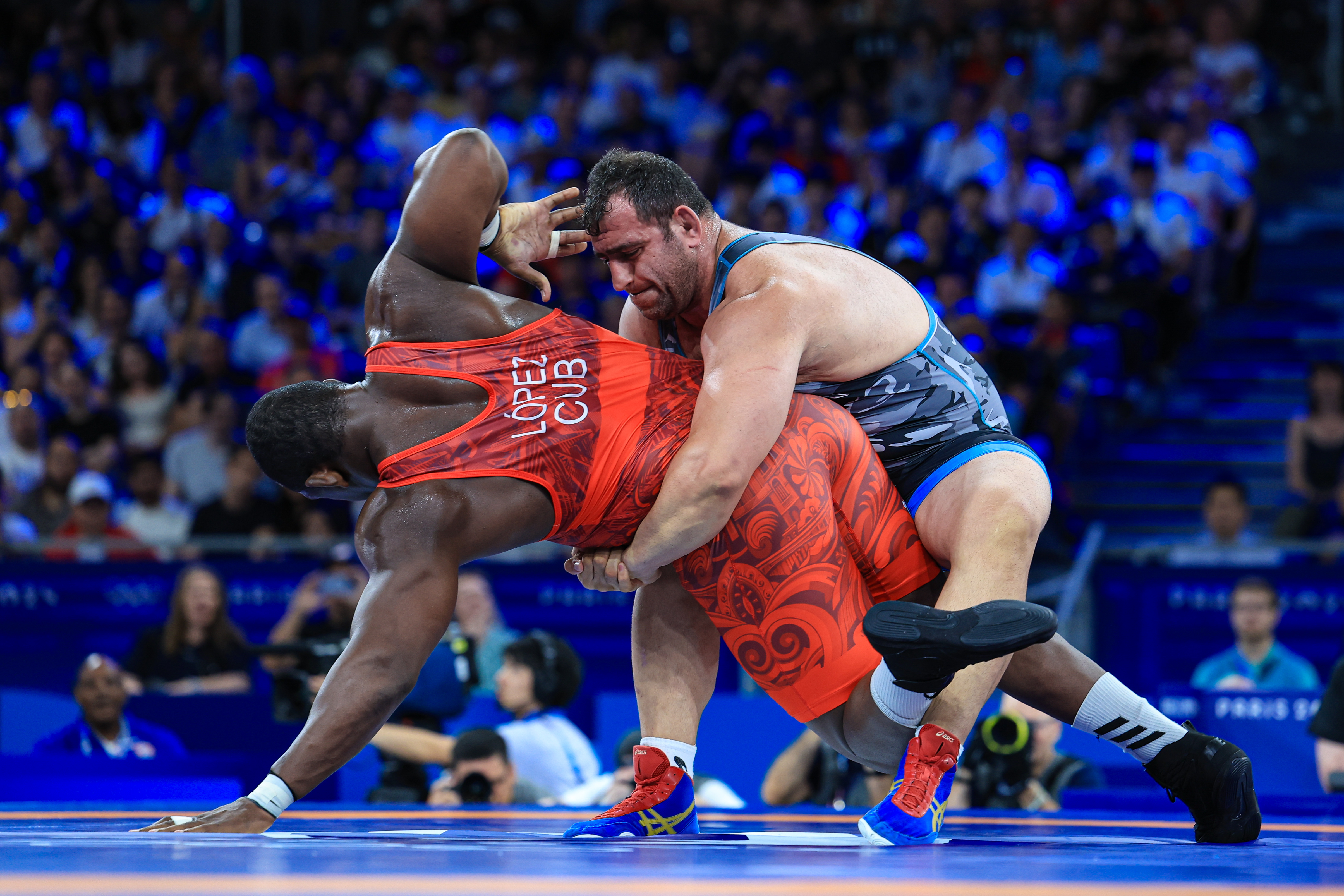
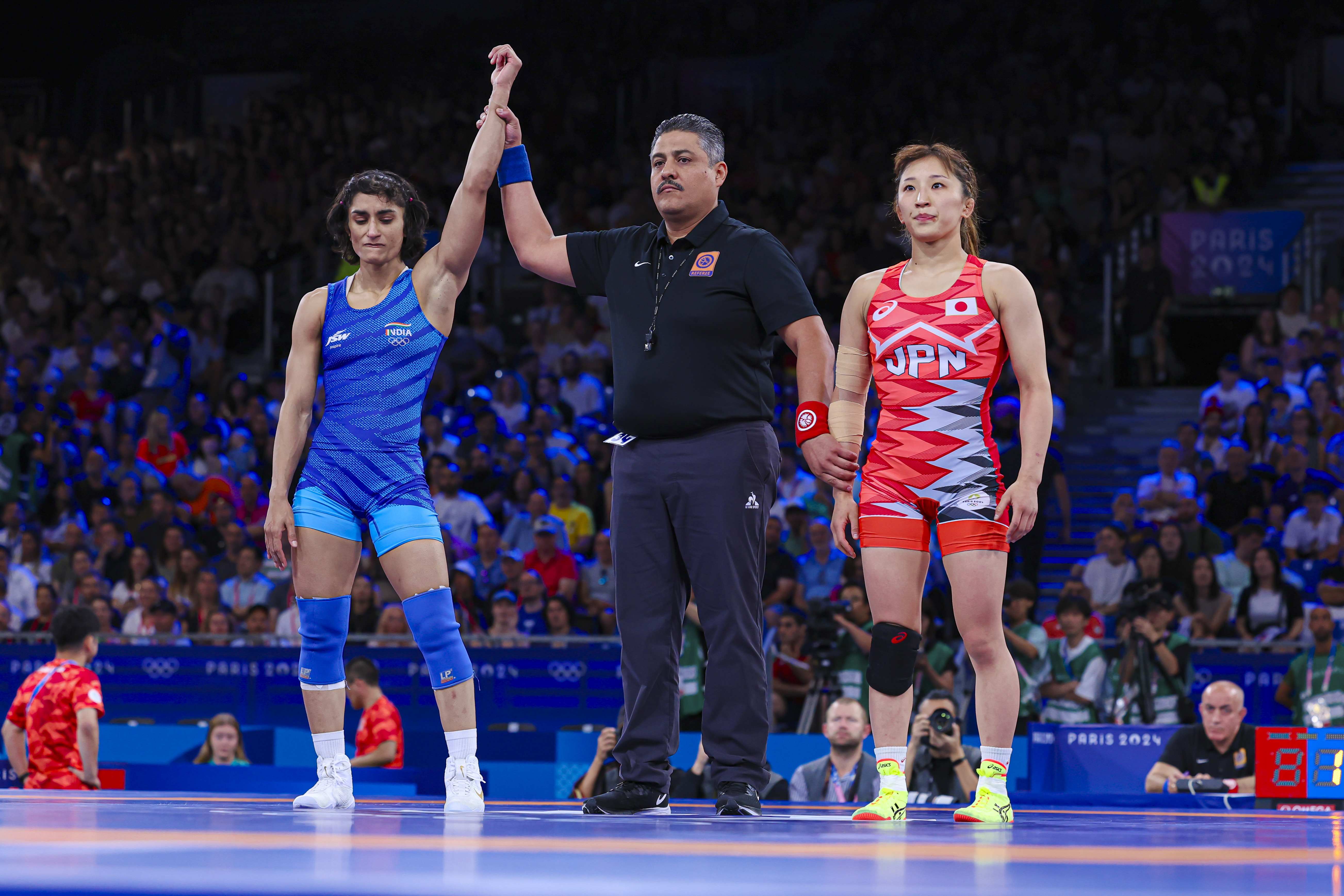
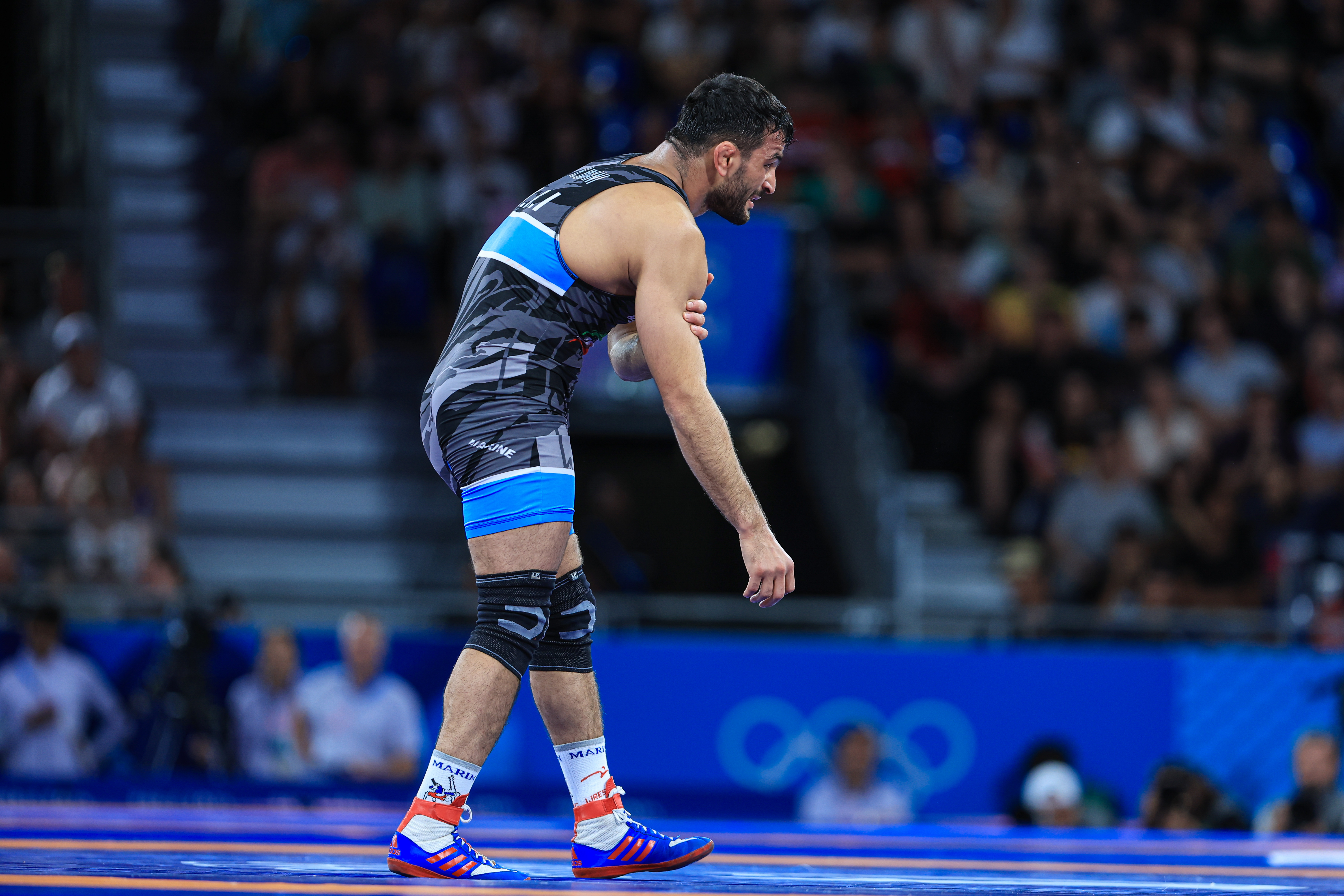




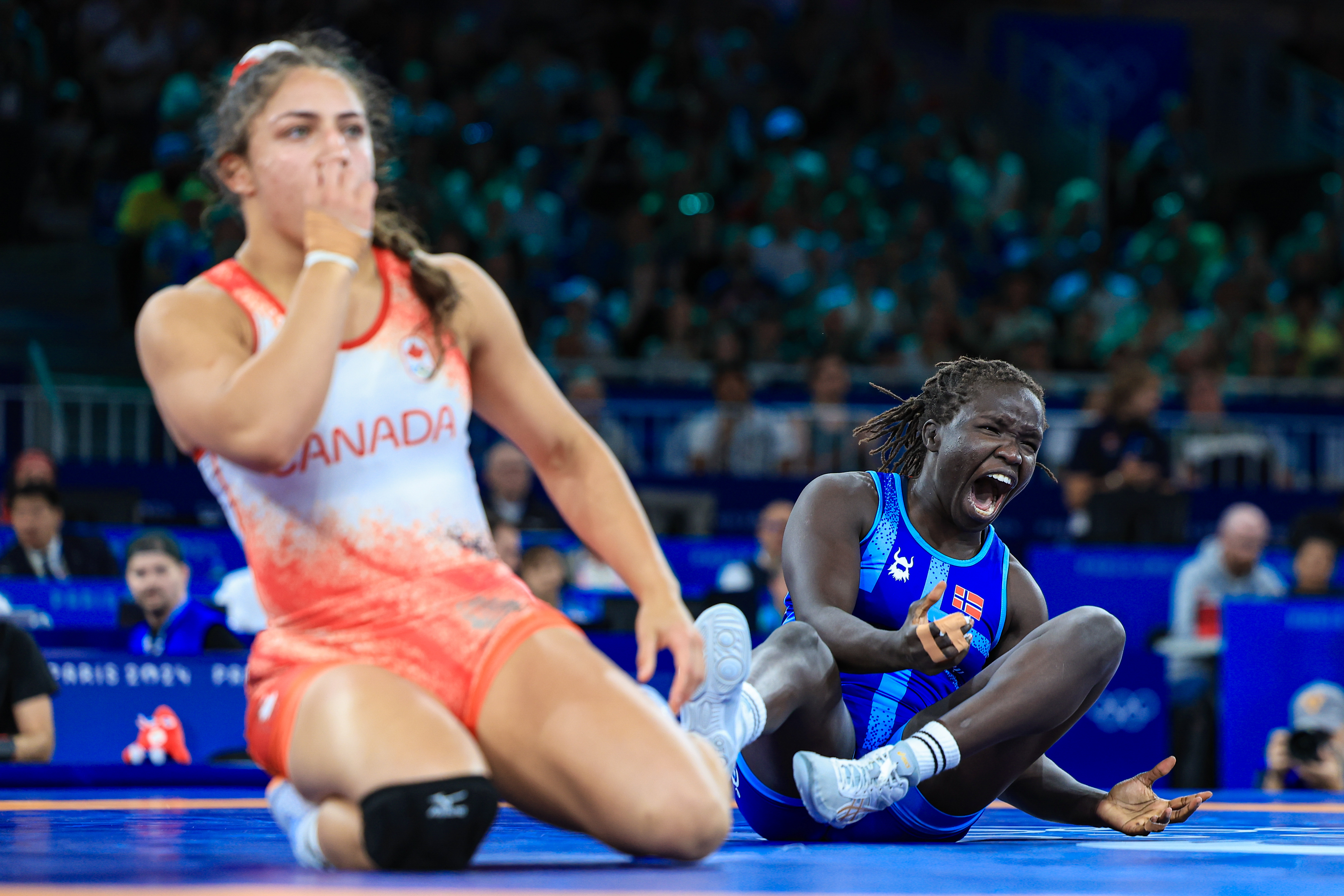


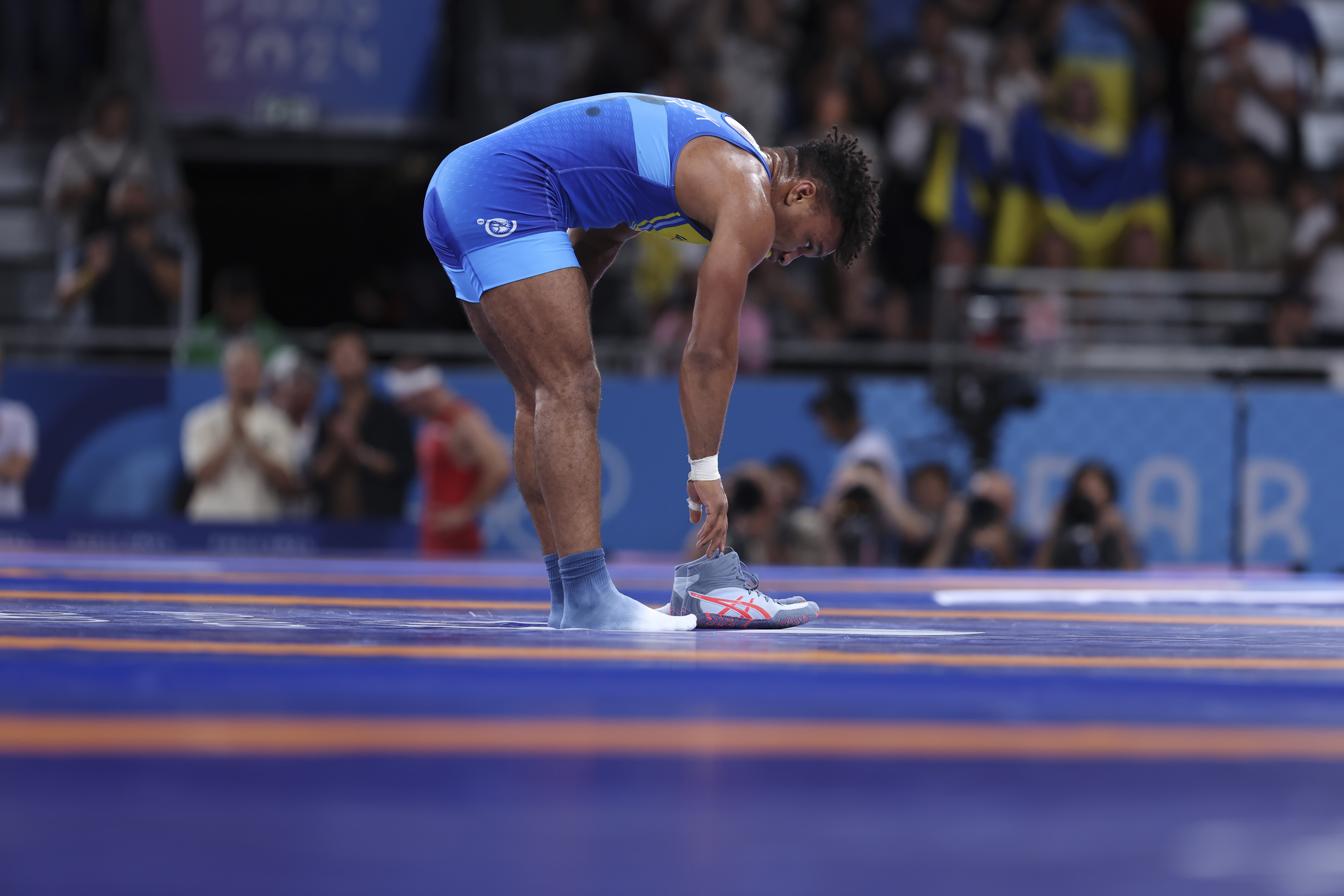
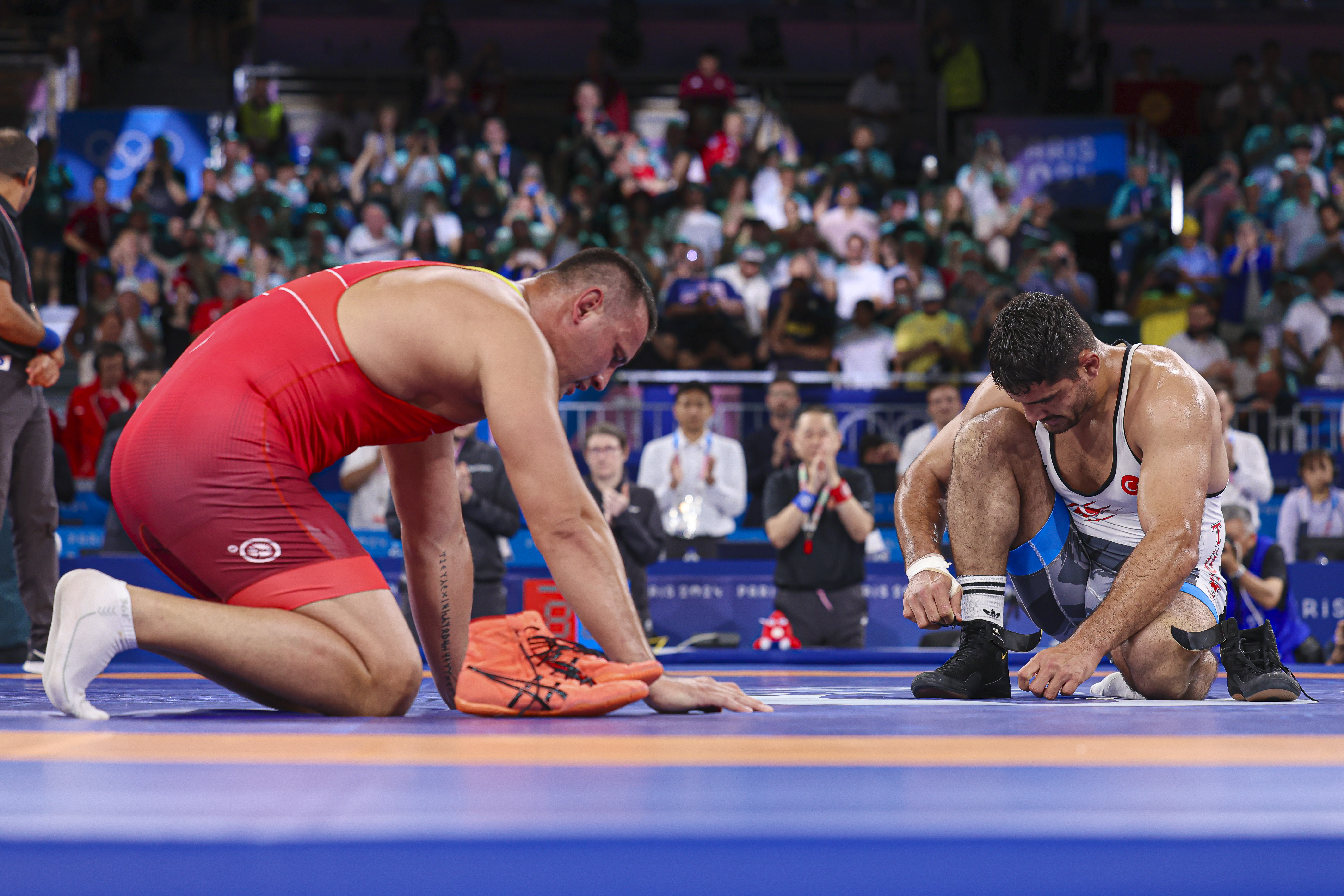
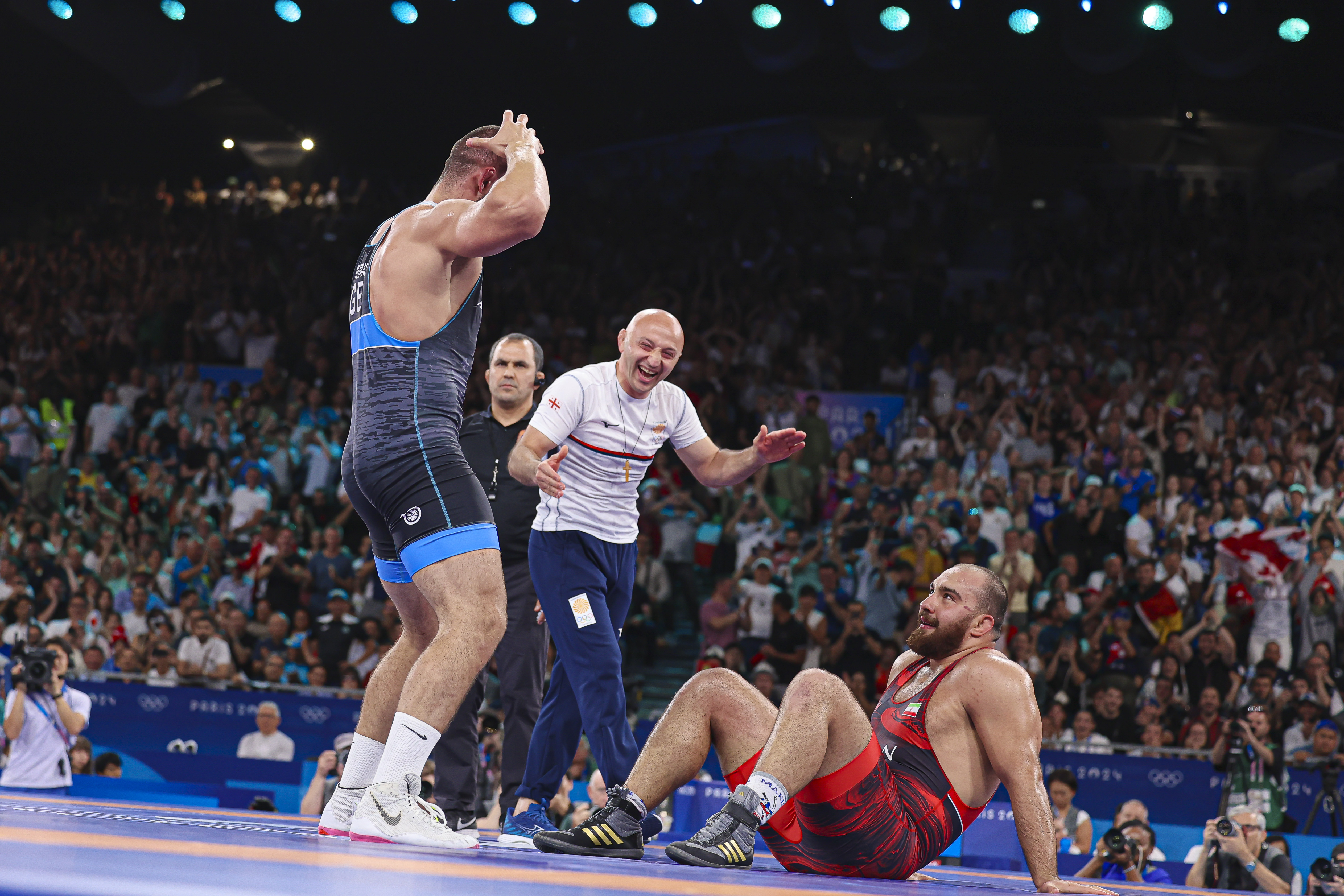

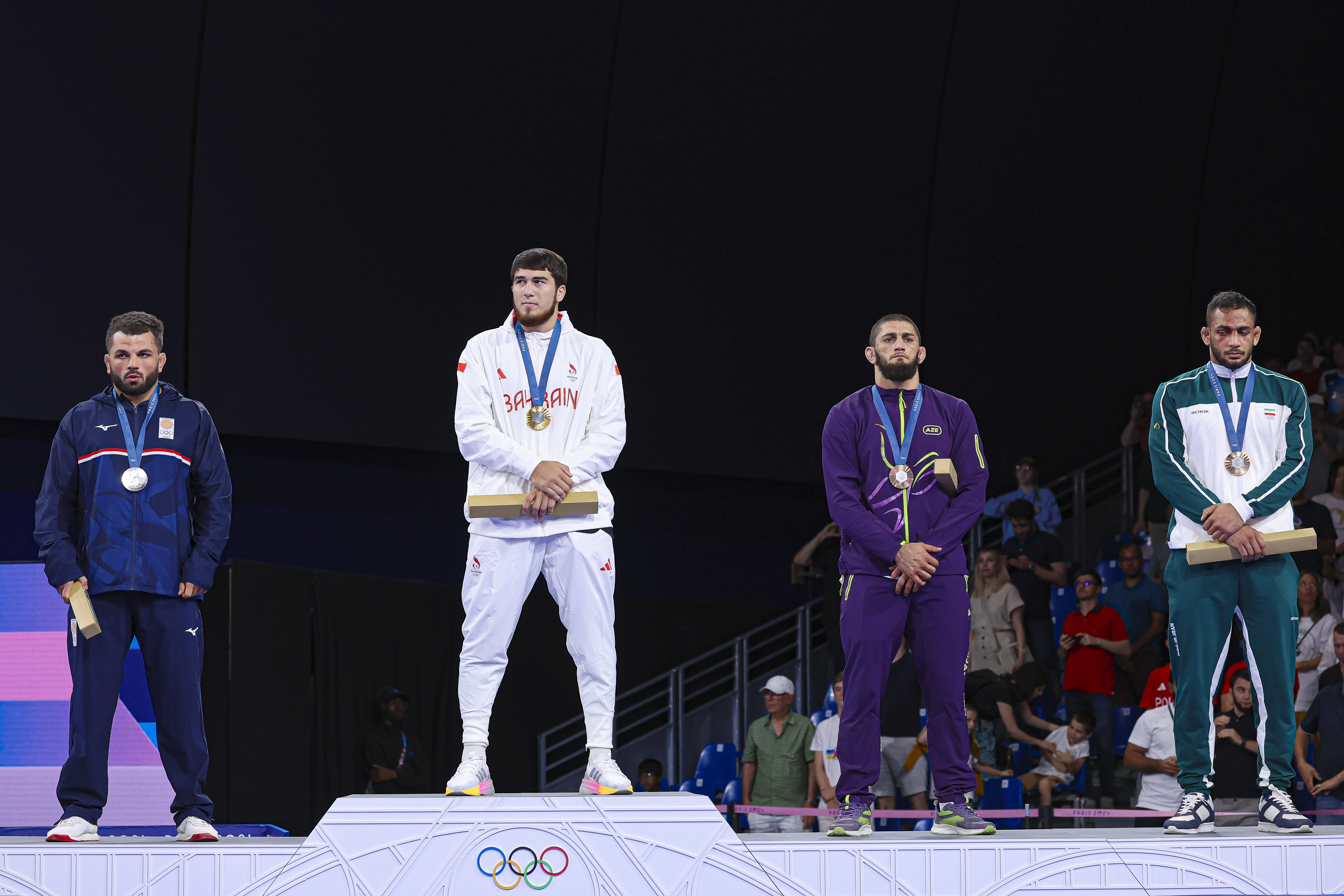


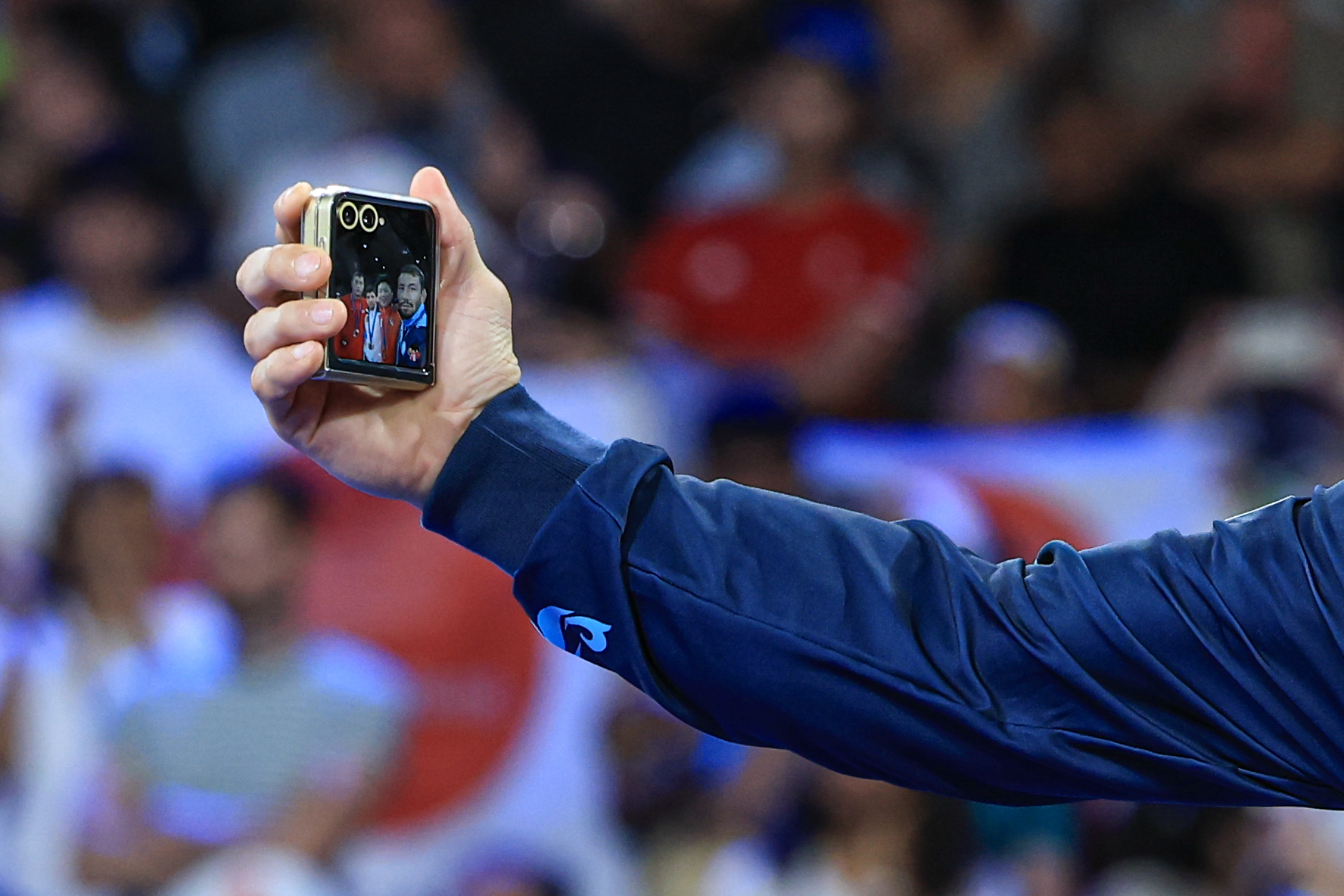
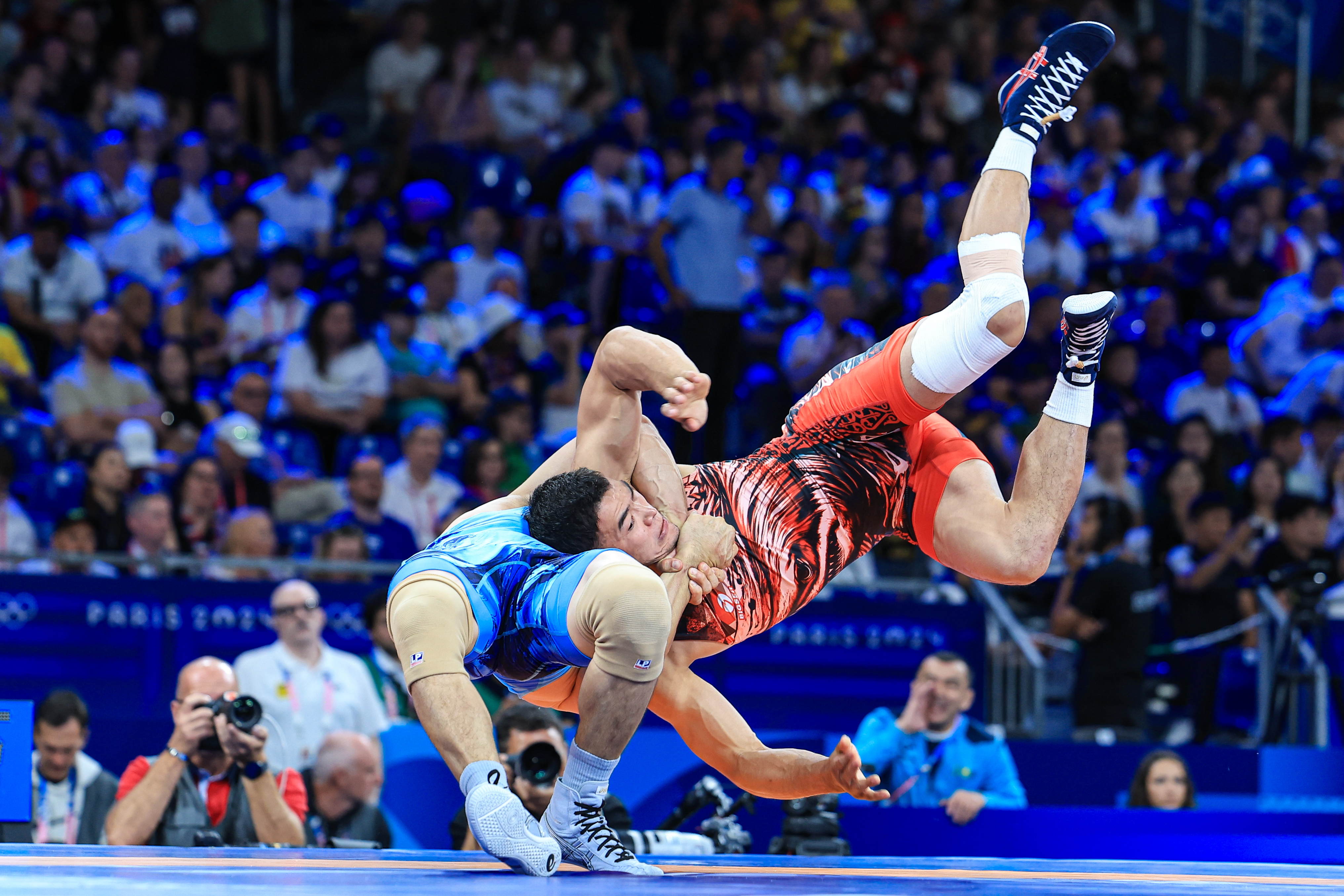

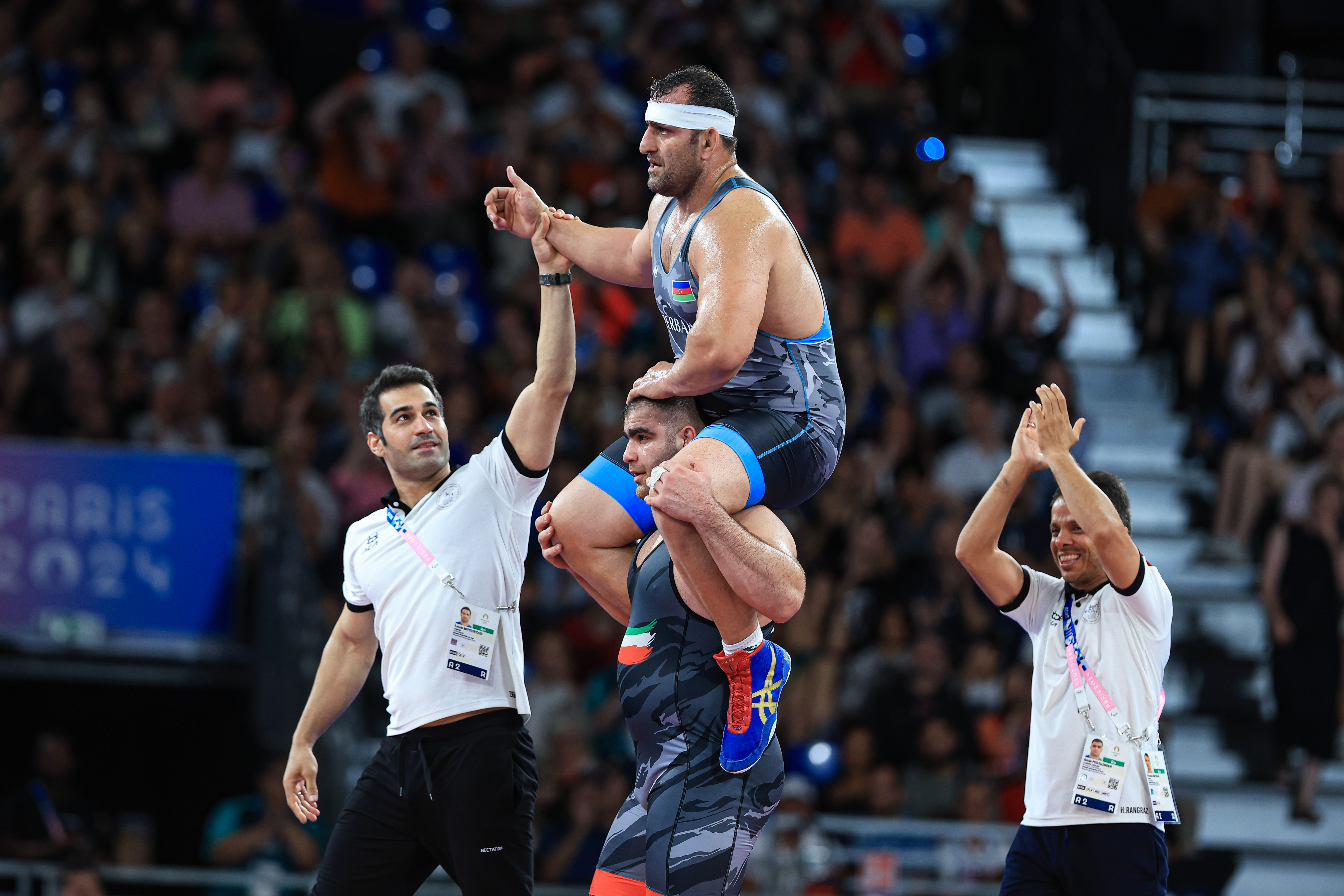


Share your thoughts.
Comments